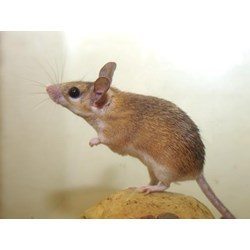Scientists have found a way to use CRISPR to create new neurons in mice with Parkinson’s disease—and the new method could also be used for other neurodegenerative diseases, offering hope of a cure or treatment for potentially millions of people.
When biologists first developed the CRISPR gene-editing tool, scientists working in a wide range of specializations were able to imagine what CRISPR might be able to do for their research—and we’ve now seen the remarkable tool applied to all kinds of problems, from sickle cell disease to HIV.
Now, scientists from China and the U.S. have discovered that deleting the RNA-binding protein Ptbp-1 in a specific type of brain cell—glial cells called astrocytes—causes them to turn into useful neurons.
The degradation in motor skills associated with Parkinson’s disease stem from a loss of dopamine-emitting neurons, and securing neuronal cell numbers has been hypothesized as a potential cure for the disease, but has so far been restricted only to healing and protecting neurons because neurons don’t repopulate when they are damaged or dead the way other cells do.
Previously, tampering with Ptbp-1 within other cells has resulted in positive neuronal changes. This year a Chinese study published in Cell was also able to achieve glial-neuronal conversion using CRISPR, this time turning Müller glial cells into retinal ganglion cells, and demonstrated an alleviation of associated symptoms.
RELATED: Gut Bacteria Could Guard Against—and Even Reverse—Parkinson’s Disease, Says ‘Exciting’ New Study
The RNA-binding protein prevents astrocytes from becoming neurons, so using the CRISPR tool, they edited the genetics of the astrocyte RNA in mice before injecting the cells back into various parts of the brains. Three of four mice showed “significant restoration of dopamine release,” according to the corresponding paper published in Nature.
In the words of every published scientist since Copernicus, more research is needed; particularly as it relates to the impact of astrocyte depletion in the brain.
ALSO: Success of Advanced-Stage Parkinson’s Treatment is ‘Beyond Researcher’s Wildest Dreams’
Furthermore, when testing mice aged 1 year, the equivalent of a 60-year old human there was a marked and aging-correlated reduction in the number of CRISPR-altered astrocytes that became neurons; as many as 60% in some cases.
“This mouse study is just the beginning,” Xiang-Dong Fu, a biologist at UC Berkeley, told South China Morning Post. “It’s the proof of a concept.”
(Image credit: National Human Genome Research Institute, CC license)
SHARE the Innovation With Friends on Social Media…




